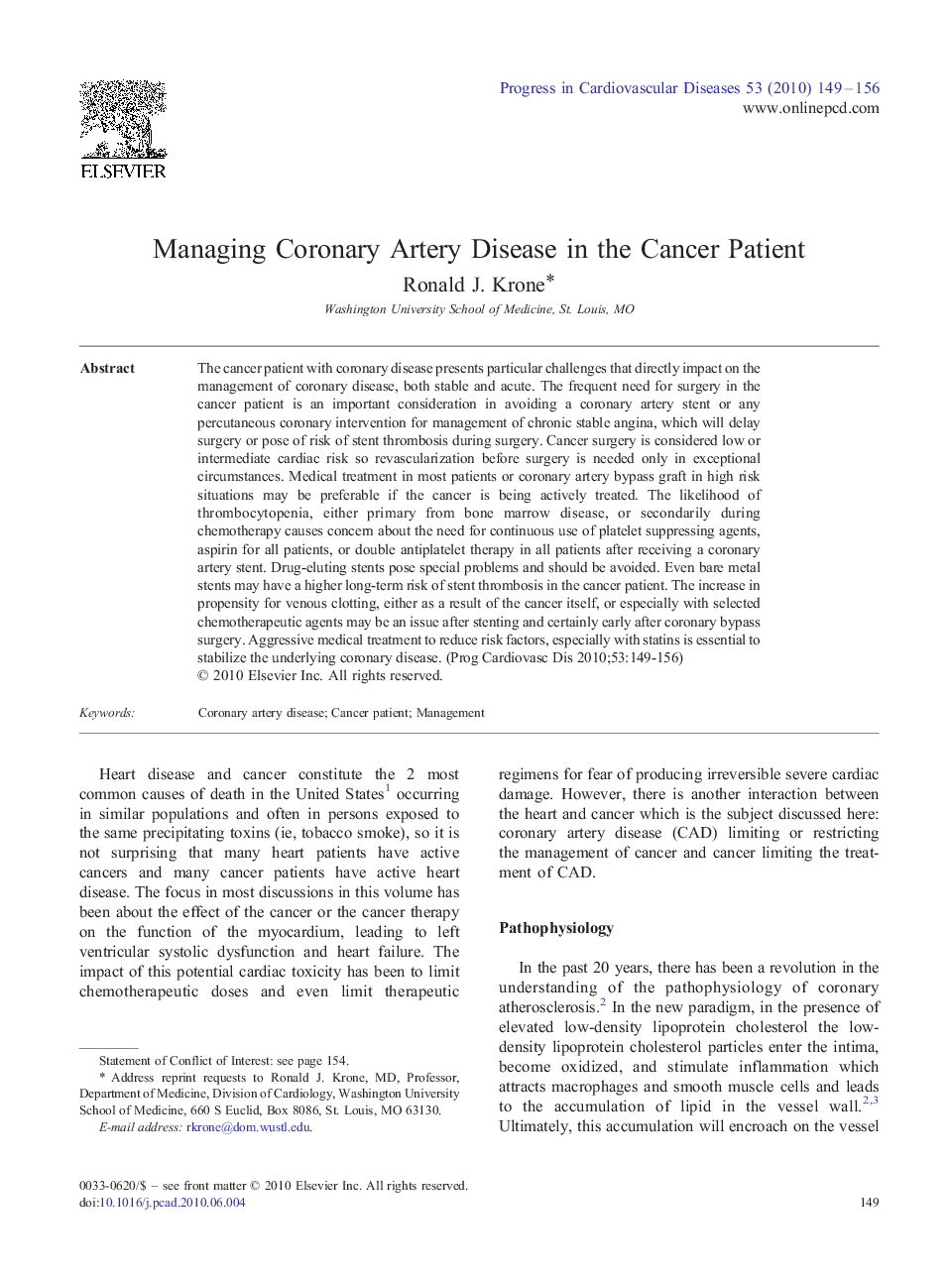| Article ID | Journal | Published Year | Pages | File Type |
|---|---|---|---|---|
| 3006903 | Progress in Cardiovascular Diseases | 2010 | 8 Pages |
The cancer patient with coronary disease presents particular challenges that directly impact on the management of coronary disease, both stable and acute. The frequent need for surgery in the cancer patient is an important consideration in avoiding a coronary artery stent or any percutaneous coronary intervention for management of chronic stable angina, which will delay surgery or pose of risk of stent thrombosis during surgery. Cancer surgery is considered low or intermediate cardiac risk so revascularization before surgery is needed only in exceptional circumstances. Medical treatment in most patients or coronary artery bypass graft in high risk situations may be preferable if the cancer is being actively treated. The likelihood of thrombocytopenia, either primary from bone marrow disease, or secondarily during chemotherapy causes concern about the need for continuous use of platelet suppressing agents, aspirin for all patients, or double antiplatelet therapy in all patients after receiving a coronary artery stent. Drug-eluting stents pose special problems and should be avoided. Even bare metal stents may have a higher long-term risk of stent thrombosis in the cancer patient. The increase in propensity for venous clotting, either as a result of the cancer itself, or especially with selected chemotherapeutic agents may be an issue after stenting and certainly early after coronary bypass surgery. Aggressive medical treatment to reduce risk factors, especially with statins is essential to stabilize the underlying coronary disease.
